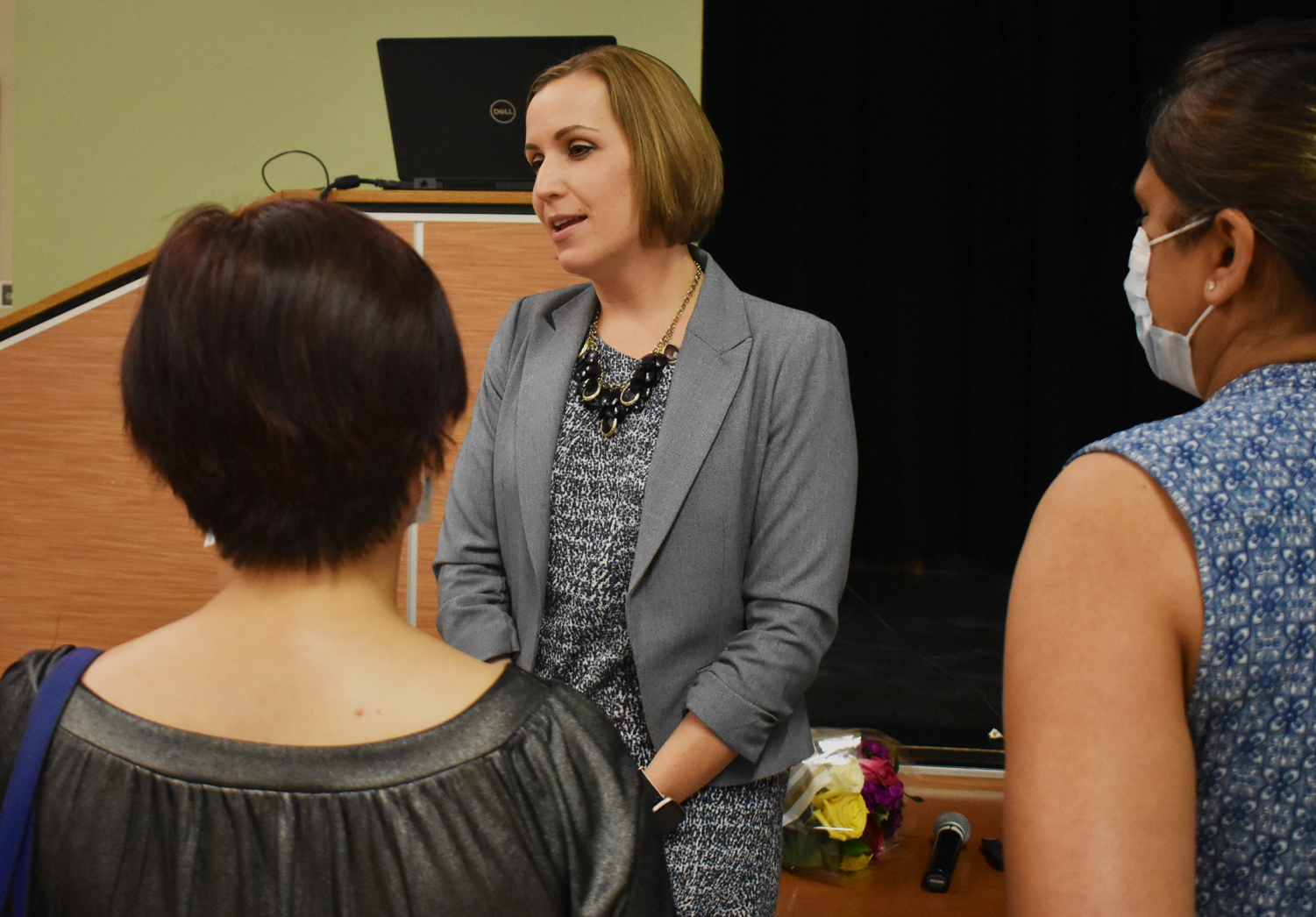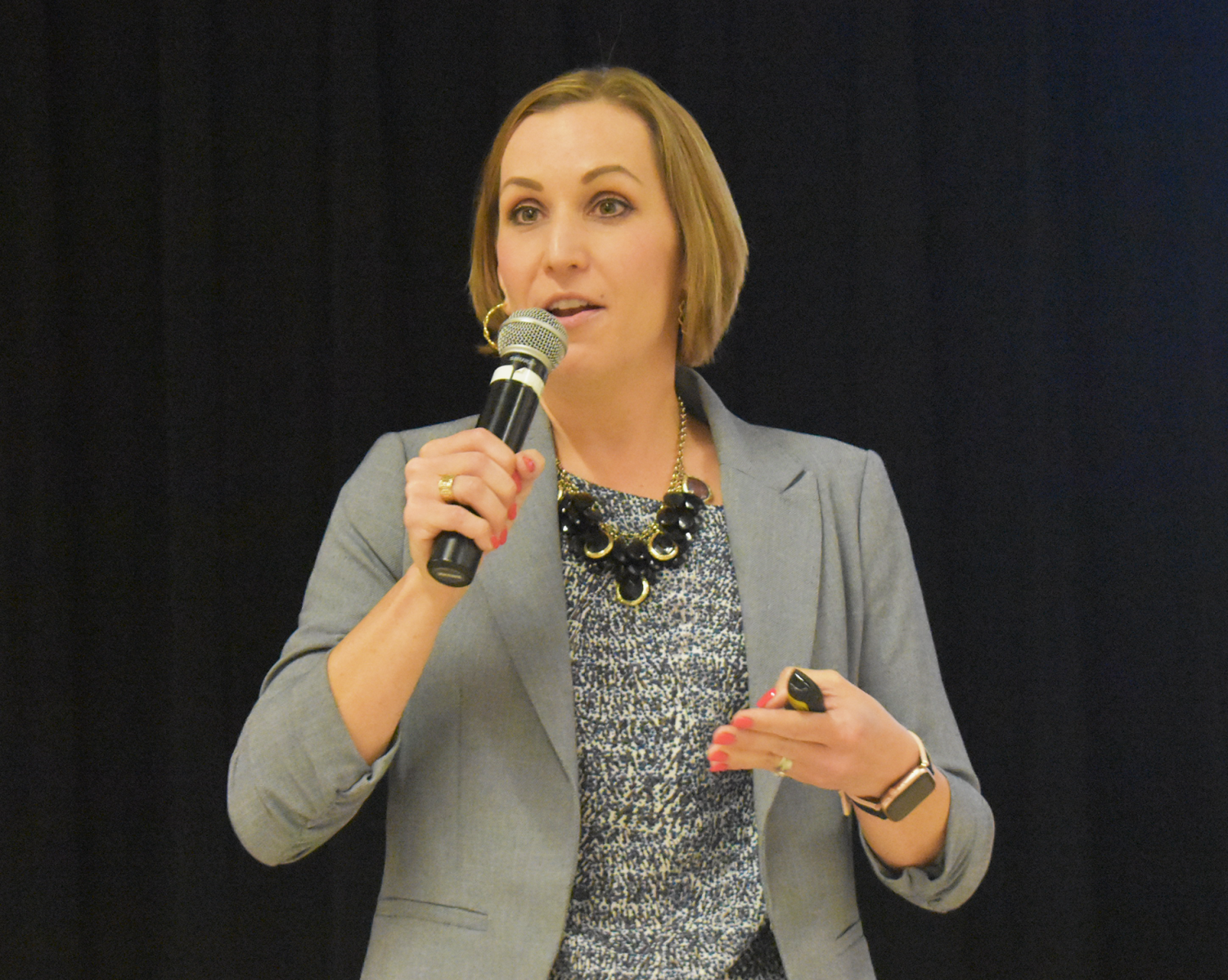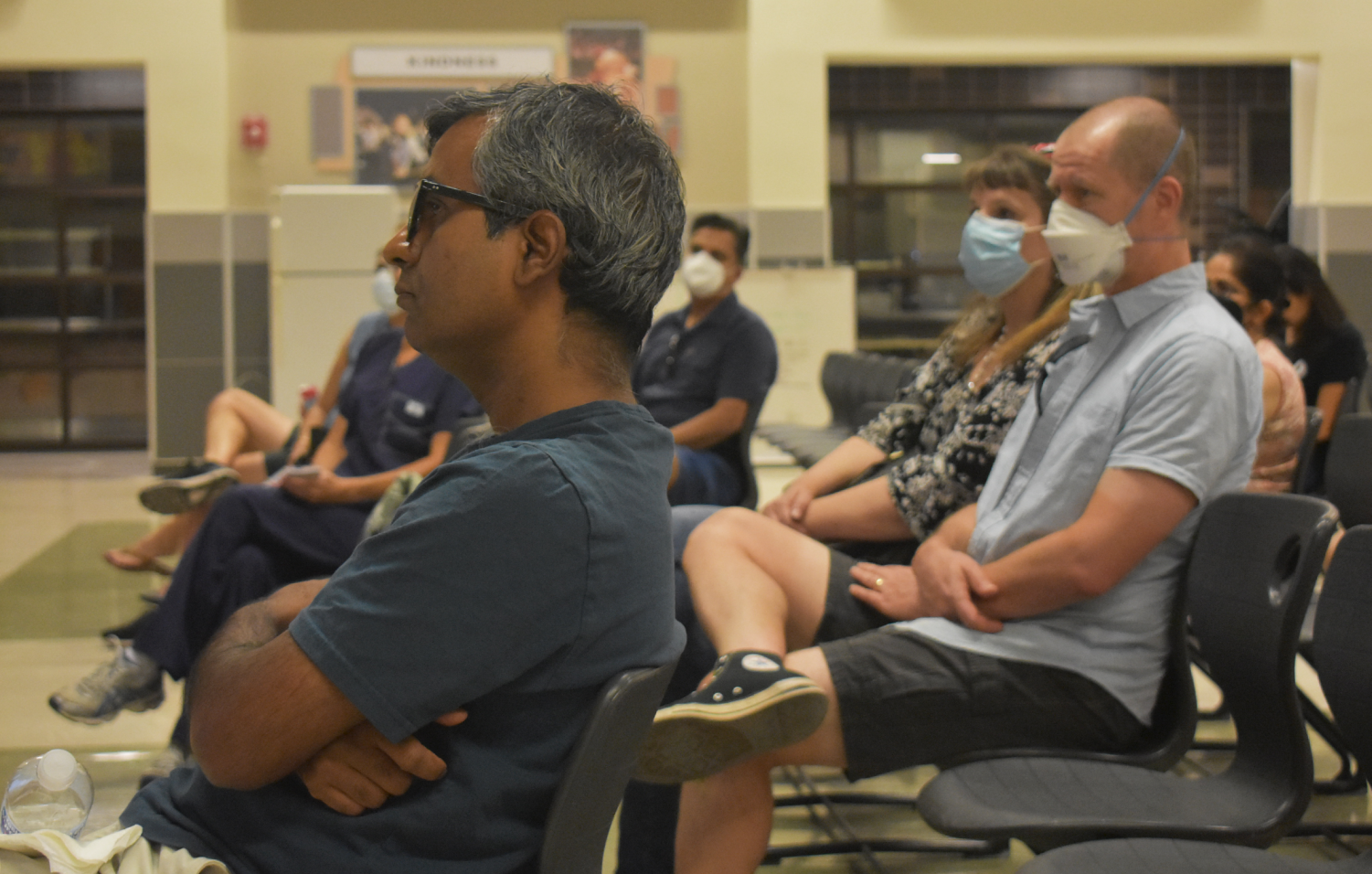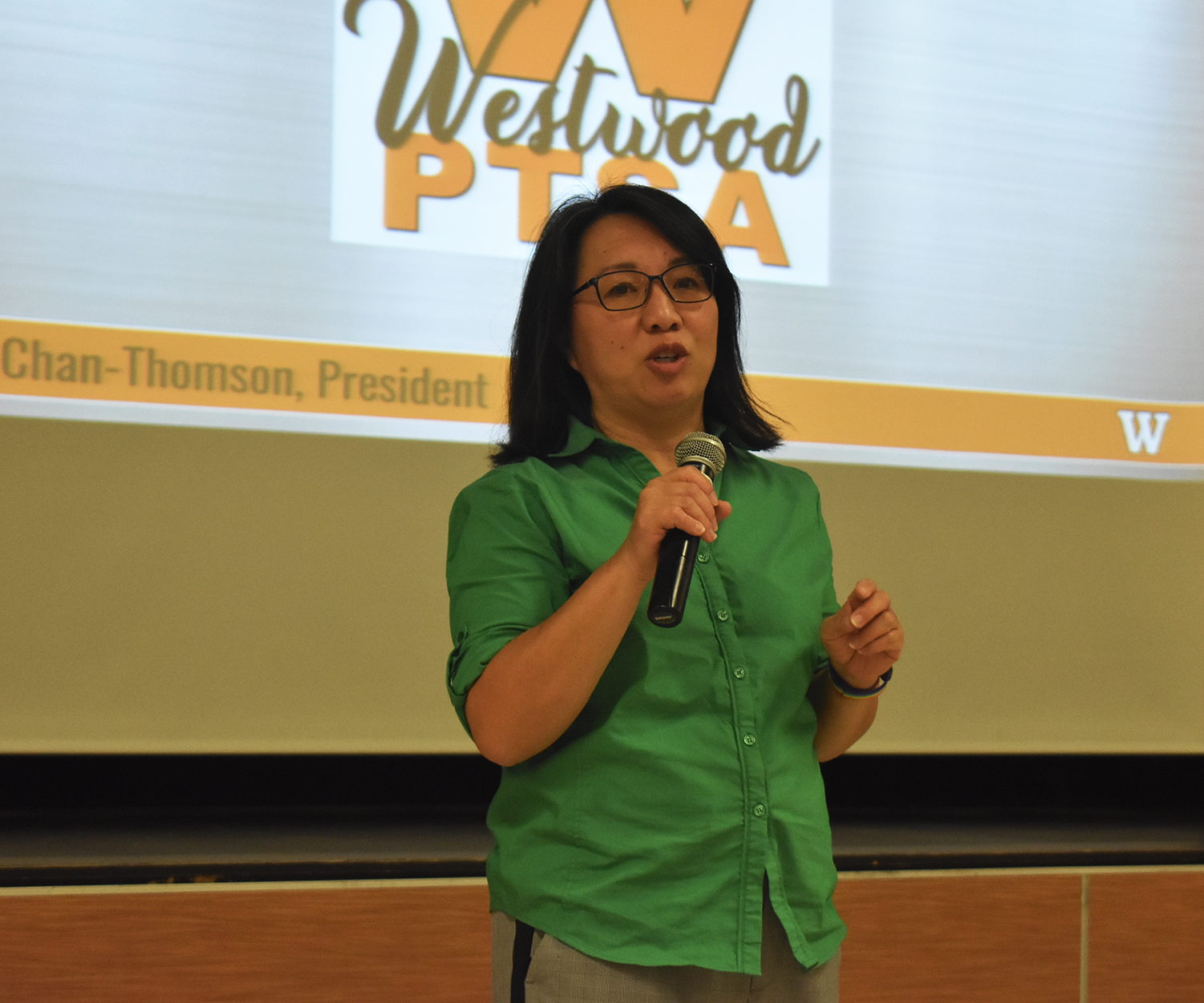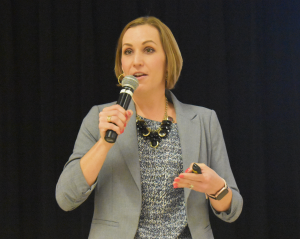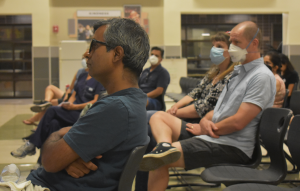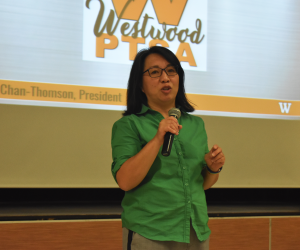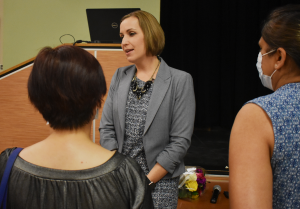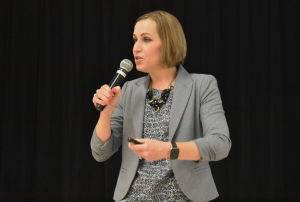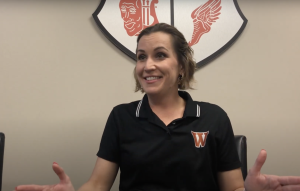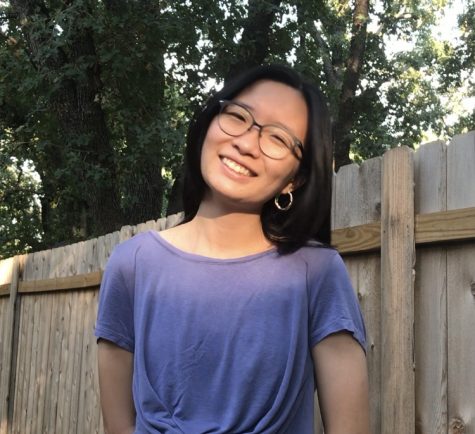Ms. Erin Campbell Discusses Goals as Principal at Community Meet-and-Greet
July 13, 2022
Attentively welcoming various community members, newly appointed principal Ms. Erin Campbell conversed with students, parents, and teachers during a public meet-and-greet reception in the cafeteria on Tuesday, July 12. Following a brief presentation, attendees were encouraged to ask questions and provide feedback.
In what will add to her experience totaling 17 years in education, Ms. Campbell employs a unique perspective as an alumna of Westwood, informing strong ambitions to lead the school moving forward. Key in her goals is the intention to preserve the longstanding diversity of program offerings on campus, with a pronounced emphasis on inclusivity.
“This is what hits home for me. I want our students to feel like they always have a place at Westwood High School,” Ms. Campbell said.
Fostering meaningful connections to carry on with embracing the student voice in decision-making is one practice that has instilled greater confidence in administrative operations.
“That is one of the most powerful things about our student body,” Ms. Campbell said. “They take ownership of their school, and if they want something new, or they want a new organization, structure, or system, they come to us and they give us that input.”
While she is eager to continue gathering input from all stakeholders, she believes facilitating more accessible, productive discussion forms the distinction between passive interaction and a commitment to personalized action.
“Being a part of this campus already ensures a smooth transition for our faculty, students, and community,” Ms. Campbell said. “I’m grateful to provide that, but I’m also not complacent in thinking that everything that we’re doing is perfect.”
Many challenges derived from the pandemic were prolonged, and at the expense of faculty morale. The extent to which traditional systems could be reconstructed shaped debate long before classroom closures, but bore the brunt of the damage suffered in the immediacy attached to attaining normality, as the grip quickly loosened on competing pressures mounting in the teaching profession.
“For us at Westwood, especially in this upcoming year, it is critical that we as a community, and as an administration, are doing everything we can to support our teachers and to create the environment where retention levels are the highest anywhere,” Ms. Campbell said.
As evidenced by the 35 vacancies left at the end of the previous school year, priorities have shifted significantly. Currently, a functional academic classroom (FAC) instructor in special education and computer science teacher remain the final two openings administration has yet to finalize. Ms. Campbell is optimistic about the current progress made on hiring, citing a detailed contingency plan should the positions remain unfilled.
“We really do attract the very best that is out there,” Ms. Campbell said. “Through the months of May and June, that was our top priority. The teachers who are coming into our already amazing faculty are of the highest caliber.”
Wishing to remain anonymous, the parent of an incoming ninth grader expanded upon desires to find a clarified focus in student-teacher relations, aligning with concerns regarding diminished engagement during lessons.
“We need high-quality teachers [to] make sure the student is very efficient in the classroom, and they feel happy [and] occupied with stimulating learning material,” the parent said.
Transitional processes helmed during any changes in leadership are marked by a perennial necessity to alleviate student stress. Particularly conducive to the specific circumstances that shaped teaching models during COVID-19, such objectives now present themselves differently under the lessons learned from restoring an otherwise exhausted holistic wellbeing.
“When there’s pressure on students, teachers are the first to know,” Social Studies Department Chair and IB History teacher Ms. Kelly Saenz said. “We had a lot of students who were dislocated by the remote teaching, and we knew we couldn’t come back and expect everything to be exactly the same. We chose to stay more in tune with students, so we streamlined and rebuilt.”
The uncertainties that inevitably trail with each new school year become simplified when assessing the specificity of needs across groups.
“Because we don’t have to build new systems, we can focus more on community-building, and that part of the school experience that supports academic successes,” Ms. Campbell said.
Students also look forward to sharing their perspectives, aiming to strengthen collaboration and heighten communication on relevant issues.
“Building that one-on-one relationship with each specific student would allow concerns to be addressed individually,” Ishaan Sharma ‘23 said. “[Ms. Campbell] is pretty adamant on listening to the student body, and I’m ready to see where she takes it.”

